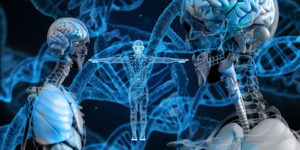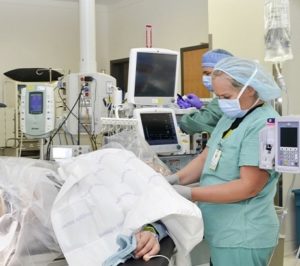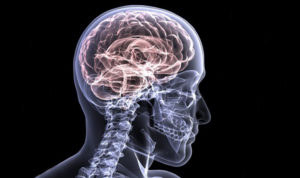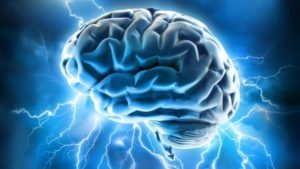Uncategorized
Risky Brains: Brain Structure Promotes Smoking, Drinking, Sex
Our survival requires balancing risk against reward, but some people take risks with abandon whereas others cower. Why? Consider elite rock climber, Emily Harrington, who became the first woman to free climb the extremely dangerous route Golden Gate, on El Capitan in a day, triumphing only a year after she suffered a near-fatal fall on the same route. According to…
Read MoreHow Futurist H. G. Wells, Foresaw the Invention of the World Wide Web– and the Collapse of Journalism and Democracy this Technology would Bring
The brilliant biologist and author, H. G. Wells (1866-1946), who wrote The Time Machine, The Invisible Man, War of the Worlds, and who foresaw space travel, atomic bombs and the development of the world-wide web, also predicted that the latter invention would bring what we are now experiencing–the downfall of journalism. Peering into the 21st…
Read MoreStress Reawakens Dormant Cancer—New Research Discovers How
Everyone is experiencing increased stress during the pandemic, and some of us—doctors, nurses, workers who are suddenly unemployed, and people who have lost loved ones to the disease—are dealing with profound stress. The belief that psychological stress can increase the risk of cancer is widely shared, but the scientific studies to date have provided mixed…
Read MoreNew research links serotonin and dopamine not just to addiction and depression, but to the ability to control genes
“Half of what you learned in college is wrong,” my biology professor, David Lange, once said. “Problem is, we don’t know which half.” Those words came to mind as I opened my copy of Science at home one night, and an unfamiliar word in the title of a new study caught my eye: dopaminylation. The…
Read MoreContrast Between Trump’s COVID Care and Everyone Else
For many, the TV reports of the president’s treatment will be their first exposure to the detailed treatment for COVID-19, so it is important to understand that this is not, by any means, representative of the physical and psychological experiences others will face if they are stricken by this potentially deadly virus. Unfortunately, I can…
Read MoreNabbing Criminals by Using Brainwave Analysis
In a dramatic courtroom demonstration, O. J. Simpson struggled to put on a pair of blood-soaked leather gloves recovered from the murder scene—damning physical evidence of guilt if indeed the gloves were his. “If it doesn’t fit, you must acquit,” defense attorney Johnnie Cochran proclaimed to the jury. Whether Simpson’s failed efforts were theatrics or honest is difficult…
Read MoreNeurological Implications of COVID-19 Raise Concerns
Virologists are alerting doctors to a possibility that could help explain two of the most puzzling aspects of COVID-19—why the severity of the disease varies so widely, and how the infection can be so deadly. In severe cases the virus may enter the brain through the olfactory nerve in the nasal cavity and damage neurons that control…
Read MorePromise and Concerns of Reading and Controlling Minds with New Technology
The ability to detect electrical activity in the brain through the scalp, and to control it, will soon transform medicine and change society in profound ways. Patterns of electrical activity in the brain can reveal a person’s cognition—normal and abnormal. New methods to stimulate specific brain circuits can treat neurological and mental illnesses and control…
Read MoreUntangling Controversy over Brainwaves in Autism
Brainwaves are cited as a biological basis for autism, an objective method to diagnose it, and a treatment through EEG-guided neurofeedback. Yet each of these intersections between brainwaves and autism is controversial. These mysterious waves of electromagnetic energy radiating out of the human brain are interrelated with autism, and there is tremendous potential for brainwave…
Read MoreRomance Rides on Brainwaves
Love. It’s what makes the world go round. Across cultures and throughout the span of human existence, the quest to find the right romantic partner is the hub of life. The mysterious attraction that draws two strangers together romantically is unspoken and seems to burst forth automatically from somewhere deep below our conscious deliberation. Romantic…
Read More








